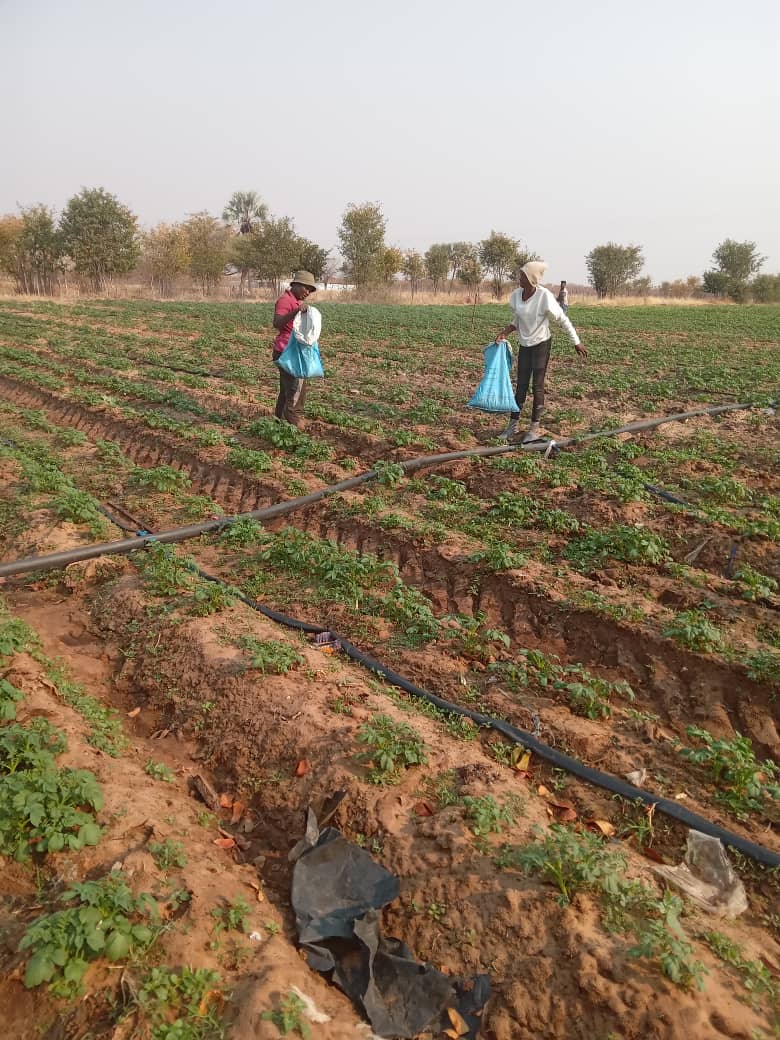Namibia Agro-Marketing and Trade Agency (AMTA) has divulged shortfalls stemming from limited financial resources coupled with low production from local farmers as some of the major limitations prohibiting the full execution of the agency mandate and planned activities.
The agency revealed its limitations to New Era this week while responding to questions relating to the farmers’ criticism on its alleged failure to execute its mandate of managing the Fresh Produce Business Hubs (FPBHs) and National Strategic Food Reserve (NSFR) infrastructure.
The organisation is responsible for the marketing and trading of agricultural produce in the country.
AMTA corporate communication officer Pasval Elijah said the organisation is working tirelessly and is collaborating with various industry partners to execute its mandate.
“We are aware of and confirm those grey areas and limitations. For instance, the Ongwediva and Rundu fresh produce business hubs have large facilities on which the Agency can do many activities such as value addition, but the facilities are not fully completed and are under-equipped.
Value addition and product diversification are critical in this era; however, it is limited. This therefore leads to a large utility bill which the Agency must cater for, despite not using the buildings to their full potential,” she admits.
She however reveals that AMTA is also faced with inconsistencies and an untimely supply of produce due to lack of capacity, financial resources, and support to extensively invest in production.
She said although it is an AMTA mandate to ensure that there is sufficient production of local produce, this has been an ongoing concern, as many disparities exist when it comes to the supply of products from farmers.
Elijah revealed that AMTA has experienced low uptake from the Offices, Ministries, and Agencies (OMAs) of local products, which creates low market access.
“The agency is expected to purchase products from the local farmers, however, it is difficult when there is little to no uptake from the OMAs to feed the military bases, hospitals, prisons, and schools, as well as the local retailers to sell to the ordinary consumers. AMTA is placed in a position of low stocking levels as it would not want the stock to remain on its shelves for prolonged periods,” she maintained.
Farmers’ concerns
The Olushandja Farmers Association has labelled the agency as a “white elephant” and slammed it for failing to absorb their fresh produce as well as create a market for the local farmers to sell their products.
“The establishment of AMTA was hailed as a relief for most of us farmers who struggled to find a market for our products for many years. The purpose was to have a government agency that acquires local produce in bulk so that producers do not sit with unsold farm produce. However, that did not materialise as we are still struggling to penetrate the market,” said Sylvanus Nuunyango, spokesperson of the Olushandja Farmers Association.
Nuuyango revealed that horticulture farmers along the Olushandja Dam have now entered into procurement agreements with the local shops such as Choppies Market, Outapi Pick n Pay and Kunene Caterers to sell their produce and make a profit.
He said the agreement has created a bit of a market relief for those farmers.
Nuuyango explained that at the time of AMTA’s inception, farmers were hopeful that having AMTA on board would propel their businesses to greater heights and open doors to bigger markets.
“Currently, our production is limited to the region, we could broaden production if AMTA was buying from us in quantity. So, for now we are producing according to our buyers’ needs and budget. Our produce is of high quality and we wish to see our products being sold elsewhere in the country,” he said.
Nuuyango said the local farmers desire to have dialogue with the AMTA management to iron out some of the major challenges facing the local horticulture sector.


